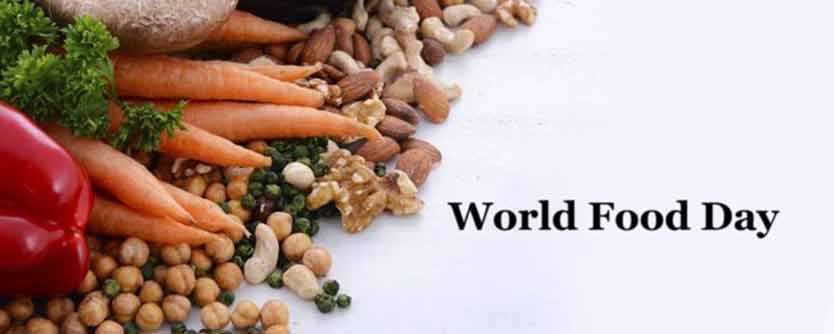The 16th of October, every year, continues to be one of the most celebrated days in the UN calendar. Marked World
[the_ad id=”6147″]Food Day, it’s when more than 150 countries join hands to bring focus back on one of our most pressing concerns – eradication of hunger, food security, and nutritious diets for everyone. This year, why don’t we make a humble beginning ourselves? Let’s promise to make an effort to learn more about the food we consume – what we need and what we waste! What nutrition really means and what it doesn’t!
The word ‘nutrition’ today is a slippery slope. With the barrage of information thrown at us from every quarter – often conflicting and at variance – what’s ‘nutritious’ today could well be unhealthy the next. The trick is to stick to a few ground rules, ignore the fads, and not get military-strict with yourself!
The ground rules –
- Vitamins! Vitamins! Vitamins!
Contrary to what you might have heard, the best way to ensure your daily dose of vitamins is by eating them. So if you’ve been popping those multivitamins blindly every day, news is, you’re most likely to have overshot your limit and created some toxicity in your system. So, junk those pills, read up on the ABCs and rework your diet. It’s really as simple as narrowing it down to whole grains, fresh vegetables and fresh fruits!
- Hello Omega!
It’s quite incredible how many areas essential fatty acids (omega-3s in particular) addresses – the brain, heart, tissues, skin, and your nervous and immune system. So what contains omega-3s? Fresh-water fish (namely salmon and tuna), flaxseeds, dark leafy green vegetables and walnuts – all easily and freely available!
- Choose colour!
If getting your child to eat nutritious food is a constant battle, try turning things around through colour. There are few things as nourishing for a growing body as those fresh and colourful fruits and vegetables. A colourful platter of natural reds, blues, yellows, oranges, greens, pinks and purples all come with the benefits of phyto-nutrients. So turn eating into a game of rainbows, and watch them indulge!
- Keep a check on your Glycemic Index
This is essentially an indicator of your blood sugar levels. Your glycemic index is a measure of how quickly a carbohydrate, after being digested, enters your bloodstream and affects your sugar levels. Food with a higher index – like refined flour or anything with a lot of sugar – acts quickly and causes a spike in blood sugar levels. If uncontrolled, this could easily lead to diabetes and obesity. So keep a watch and always opt for low glycemic index food. Anything with a lot of fibre and protein, beans, dairy products, fruits, vegetables and whole grains are all low glycemic index foods.
- Don’t fall for the ‘natural food’ trap
In a market screaming for your attention, what is sold as ‘natural’ isn’t always your healthiest option. In fact, there might not even be a standard definition to determine if a food item is a hundred percent natural. So don’t fall for marketing gimmicks.
- Choose your Fats
Not all fat is bad for you. In fact, you’d be making a mistake to junk fat altogether from your diet. Certain vitamins, like A, D, E and K are fat-soluble and need fat to be transported to different areas in your body. To cut those fats out would mean starving yourself of essential vitamins. What you need to avoid though are trans and saturated fats – those that raise cholesterol levels and are unhealthy for your heart. Unsaturated fats, on the other hand, lower bad cholesterol levels and benefit your heart.
- Don’t hate Carbs!
Just like fats, not all carbs are evil. And just like fats, you must know which to choose. Unprocessed whole grains, fruits and vegetables are your best carb sources, while any kind of over processed food, pastries and white bread are unhealthy and would most likely add to weight gain.
- Red Meat – To eat or not to?
There are many theories regarding this and as many conflicting views. But if you’re a red meat fanatic, don’t lose heart. Consuming red meat once in a while and in moderation is allowed….just make sure you don’t go overboard. Too much of it can sometimes cause chronic illnesses – like diabetes and cardiovascular complications.
- Always, smaller portions
Oversized portions and overeating are sure-fire ways to pile on those unnecessary kilos. They are extremely unhealthy for you too because the amount you eat directly affects the amount of energy your body is able to produce. Always remember to choose several meals of small portions over fewer meals with too much food.
- Indulge occasionally!
Giving up completely on all your favorite food is not just depressing but also, to an extent, pretty pointless! Living healthily doesn’t necessarily translate into killing all your passions. So remember to indulge yourself occasionally, but again, don’t overindulge!
Source:

